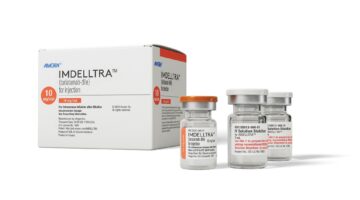
The U.S. Department of Health and Human Services released a final rule on Friday that ensures that Deferred Action for Childhood Arrivals (DACA) recipients are no longer excluded from coverage through the Affordable Care Act Marketplace.
The DACA program supports undocumented immigrants who came to the U.S. as children and helps them live and work in the U.S. legally. Recipients of the program are also known as Dreamers.
Under the final rule, which goes into effect on November 1, eligible DACA recipients will be able to enroll in a Qualified Health Plan through the Marketplace or through a Basic Health Program. Those who are eligible to enroll in a Marketplace plan could also qualify for financial assistance. The Centers for Medicare and Medicaid Services (CMS) said that 100,000 previously uninsured DACA recipients could gain coverage through the final rule.

A Deep-dive Into Specialty Pharma
A specialty drug is a class of prescription medications used to treat complex, chronic or rare medical conditions. Although this classification was originally intended to define the treatment of rare, also termed “orphan” diseases, affecting fewer than 200,000 people in the US, more recently, specialty drugs have emerged as the cornerstone of treatment for chronic and complex diseases such as cancer, autoimmune conditions, diabetes, hepatitis C, and HIV/AIDS.
The final rule comes at a time when DACA recipients are three times as likely to be uninsured compared to the general U.S. population, according to CMS.
“The Biden-Harris Administration believes health care is a right, not a privilege, and that extends to DACA recipients who have built their lives in the United States,” said CMS Administrator Chiquita Brooks-LaSure in a statement. “Today’s rule reduces barriers for DACA recipients to obtain health care coverage and is a vital step toward making certain that it is available and accessible to all Americans.”
CMS also made changes to the definition of “lawfully present,” which is used to decide eligibility for a Marketplace or a Basic Health Program. The changes “will benefit consumers by enabling CMS and states to administer their programs more efficiently for eligible noncitizens and to ensure complete, accurate, and consistent eligibility determinations and verification processes for health coverage for these populations,” CMS said.
However, CMS has not modified the definition of “lawfully present” for Medicaid and the Children’s Health Insurance Program.
The American Medical Association (AMA) came out in support of the final rule.
“The AMA has supported extending eligibility to purchase Affordable Care Act marketplace coverage to DACA recipients and advancing policies that address the unmet medical needs of unaccompanied undocumented minor children,” said Dr. Jesse Ehrenfeld, president of the AMA, in a statement. “The AMA knows that expanding access and advancing health equity improves population health and is likely to result in reduced costs for American taxpayers since individuals without insurance are less likely to receive preventative or routine health screenings and may delay necessary medical care, often resulting in higher health care costs down the road.”
Ehrenfeld added that the AMA also supports extending Medicaid/CHIP coverage to DACA recipients.
“While we appreciate resource constraints on state Medicaid agencies, we urge the administration to finalize these important access expansions in future rulemaking and look forward to engaging on this and other policies that expand access to health care services, particularly for historically marginalized populations,” he said.
Photo: zimmytws, Getty Images














